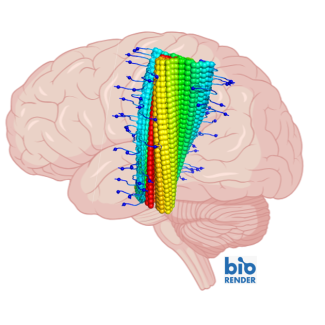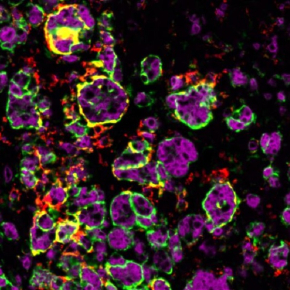
Testosterone is an ally of macrophages in the battle against adrenal cancers
Why are cancers of the adrenal glands1 more common among women? Why are prognoses worse for them? A team of scientists led by a CNRS researcher answers these questions in an article published on 14 October 2022 in Science Advances. They demonstrate that, in male mice, there is greater recruitment of immune cells known as macrophages, which can eliminate tumour cells. Hence, aggressive tumour progression is scarcely seen in male mice; while in female miles, macrophages do not slow the growth of tumours, which eventually metastasize. Through molecular analyses, the team determined that recruitment of tumour-fighting macrophages depends on testosterone. After simple administration of the hormone to females, macrophages able to eradicate tumour cells were rallied to battle. On the basis of these findings, the scientists conducted another study using data on humans, which revealed the same difference in macrophage recruitment rates between men and women with adrenal cancers. This discovery suggests the potential of hormonal stimulation as a treatment for this type of cancer, whose five-year survival rate is less than 30%.
© Julie Olabe CNRS/GReD
- 1Humans have two adrenal glands, one above each kidney. The hormones they secrete include epinephrine (involved in the control of blood pressure, heart rate, and perspiration), corticosteroids (involved in the control of blood pressure, salt and potassium levels, and sugar and fat metabolism), and androgens.
Sexually dimorphic activation of innate antitumour immunity prevents adrenocortical carcinoma development, James J Wilmouth Jr, Julie Olabe, Diana Garcia-Garcia, Cécily Lucas, Rachel Guiton, Florence Roucher-Boulez, Damien Dufour, Christelle Damon-Soubeyrand, Isabelle Sahut-Barnola, Jean-Christophe Pointud, Yoan Renaud, Adrien Levasseur, Igor Tauveron, Anne-Marie Lefrançois-Martinez, Antoine Martinez et Pierre Val, Science Advances, 14th october 2022. DOI: https://science.org/doi/10.1126/sciadv.add0422


